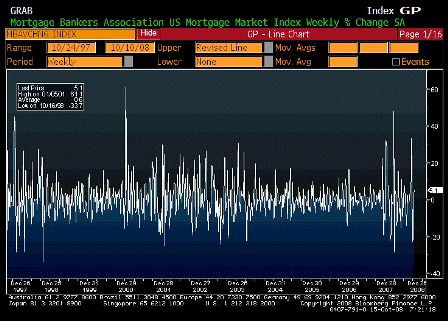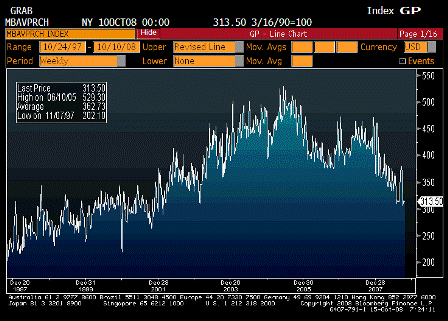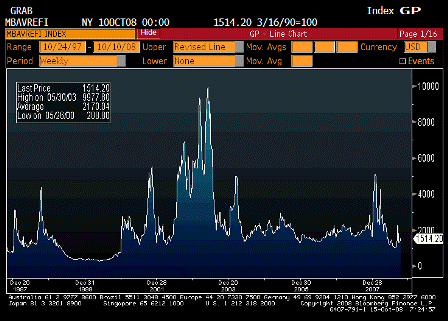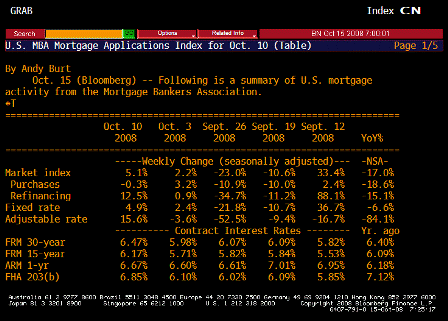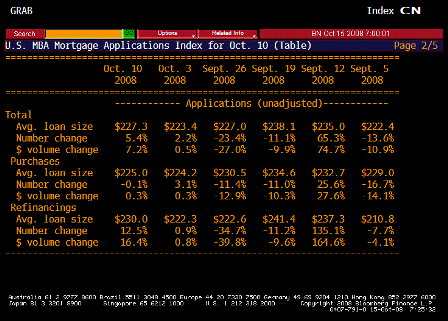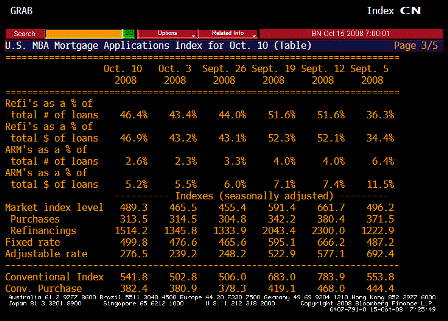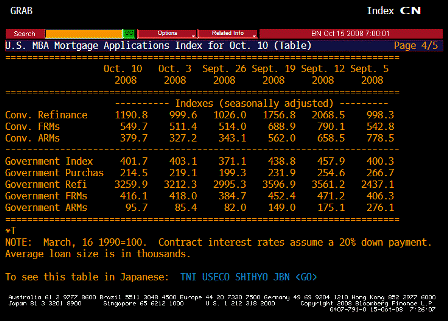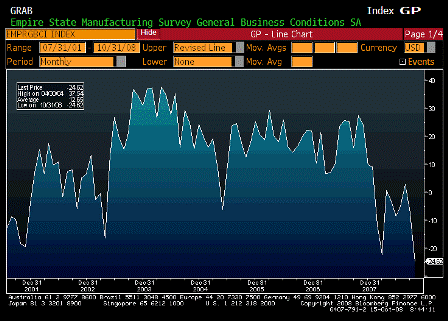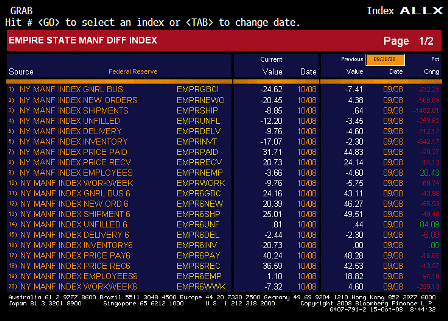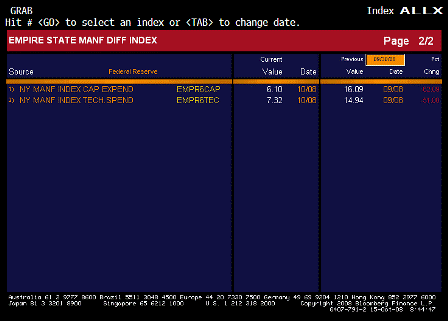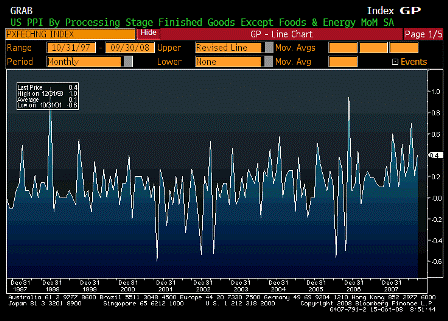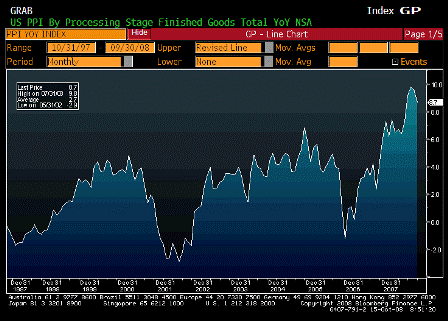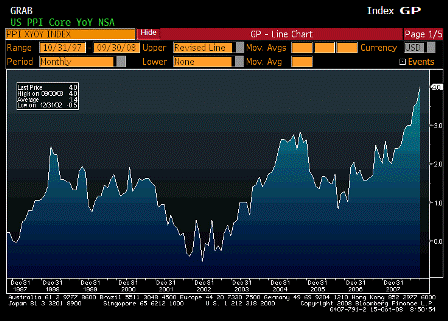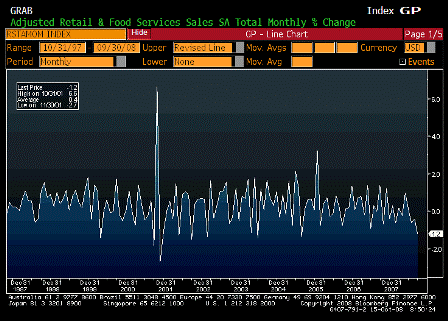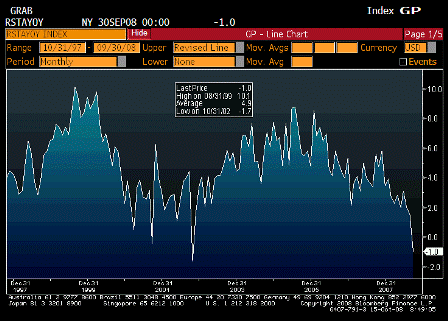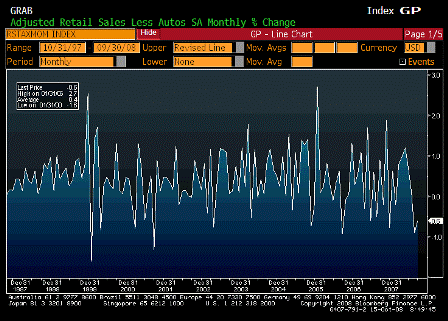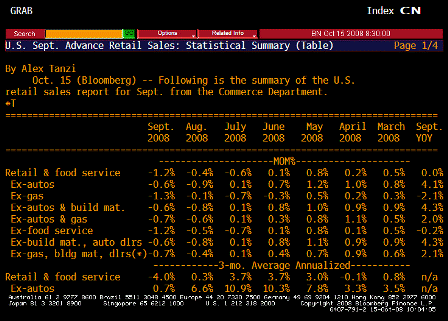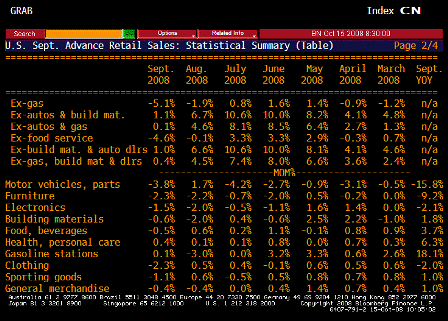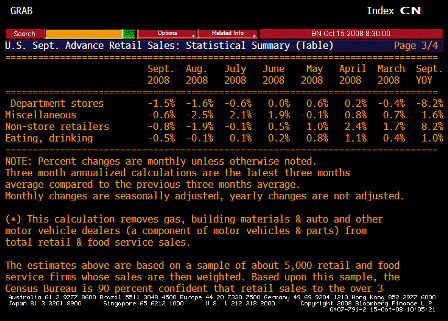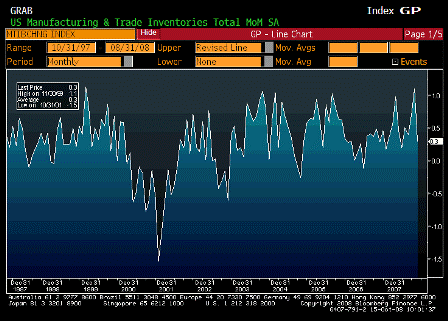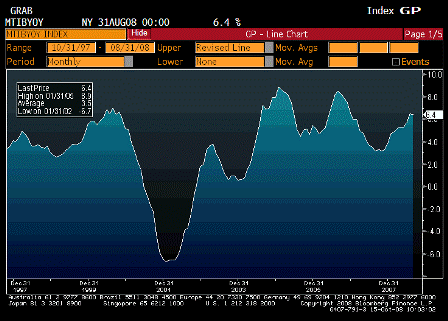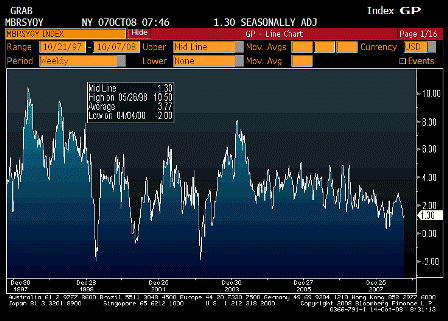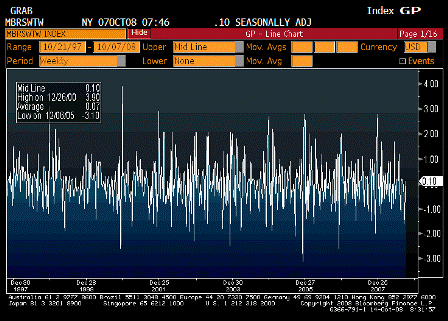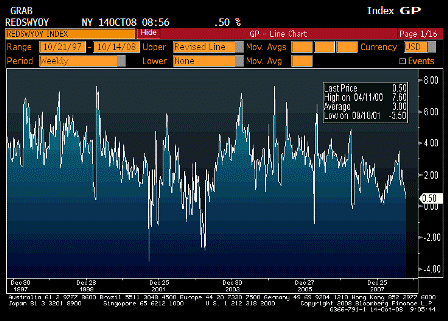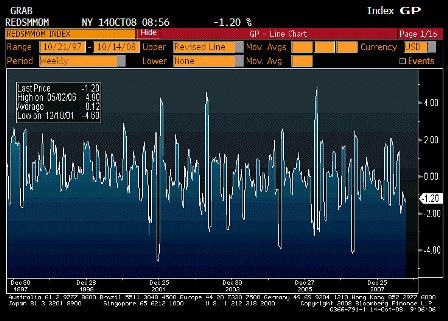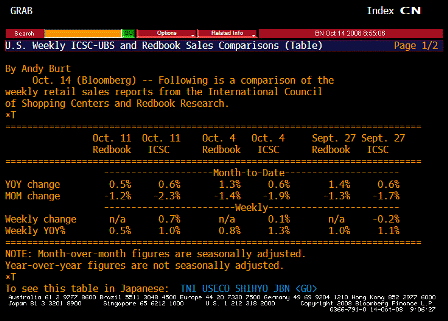[Skip to the end]
I’m keeping an eye on crude prices rising a lot more than the USD is falling; so, I suspect the great Mike Masters inventory liquidation has run its course.
Inventories are at record or near record lows.
If there has been net demand destruction, it hasn’t yet showed up in OPEC or Saudi production numbers.
The Saudis only pump on demand, at their price, so as swing producer it’s their production that should fall, not anyone else’s.
However, there can be 90 day type lags; so, October Saudi production could be down but not be reported until early November.
___________________________________________________________________________________________________________________
This latest swap line expansion should be a target of Obama and McCain, but neither are touching it.
It’s a financial blunder, potentially of epic magnitudes.
It’s also an oversight issue of epic magnitudes that could dwarf the subprime issue at the first ECB USD auction tomorrow.
The $620 billion swap lines currently in place could swell to well over a trillion USDs.
It will reduce eurobanks cost of USD funds, bring down LIBOR, and normalize bank liquidity.
And the reduction of bank credit risk is bringing in credit spreads which makes room for equities to appreciate as well.
But that’s an empty victory that changes the lack of aggregate demand very little, if any.
And it adds a new element of systemic risk.
Unrestricted/’currency secured’ international USD lending has been tried before in the emerging markets.
Yes, this type of initial lending reduces financial stress, but then it must be sustained and increased to avoid a subsequent collapse, which then becomes inevitable.
Remember Mexico and the rest of Latin America?
It took a growing level of external USD debt to hold it together, until the number got too large and the controls impossible. And then it all fell apart.
All of these ‘top down’ measures that carry the hopes and anticipations of markets should continue to be let downs as no one addresses demand.
This happened in Japan after the banks were recapitalized and ‘healthy’ and nothing happened regarding lending.
Obama and McCain have a window to jump on this opening but don’t seem to be. McCain as the watchdog and Obama as the reformer are both letting us down. Again, as they show no insight and instead keep to their canned rhetoric.
Bush and congress missed a historic opportunity to move the US away from ‘materialism’ after 9/11.
I got a call from Congressman Gephart at the time, and I said this is an opening to show a different kind of leadership as people had turned ‘inward,’ with the following type of statement:
A nation is not richer because people sleep in hotels instead of staying at home. A nation is not richer because we eat out rather than have family meals at home. And now that we have become more introspective on life itself, we can continue this enlightened change of course, back to our real core values, and steer our efforts to educating our children and improving our health care service, etc. etc.
But instead, our leadership telling us:
“Get out of Church and get into the shopping malls!” in order to ‘save the economy’, etc. etc. Gephart didn’t do it. And we went back to the malls.
This go round was also an opportunity to make a fundamental change away from a lending based model to a more cash based model which seems to me has proven more stable over time and a lot more beneficial to human peace of mind.
We could have let most of our lending institutions go by the wayside and kept the banks that would be allowed to make more conservative home loans, installment loans, checking and savings accounts, and not much else. And the housing agencies operating a bit like the old savings and loan’s used to do, but this time with sustainable, matched treasury funding.
And rather than relying on lending for aggregate demand, which is inherently unstable, we could have supported aggregate demand with a fiscal package to provide sufficient income to buy our output and sustain growth and employment.
But instead we are first ‘fixing’ the lending institutional structure, without addressing aggregate demand.
It’s unlikely that costly (in terms of lost output and employment) credit bubbles will be reduced by first supporting the lending institutions and then supporting demand.
[top]

